Public Speaker Series
2025-26 2024-25 2023-24
2022-23 2021-22 2020-21
2019-20
2020-21
Forget 2020: The World Is Getting Better, but We Remain Pessimistic
Open Borders: The Science and Ethics of Immigration
Was the Cure Worse than COVID-19?
Is Bitcoin a Bubble?
Is Christianity Compatible with Economic Freedom?
In Order to Live: A North Korean Girl's Journey to Freedom
Forget 2020: The World Is Getting Better, but We Remain Pessimistic
September 8, 2020
Marian Tupy, Cato Institute
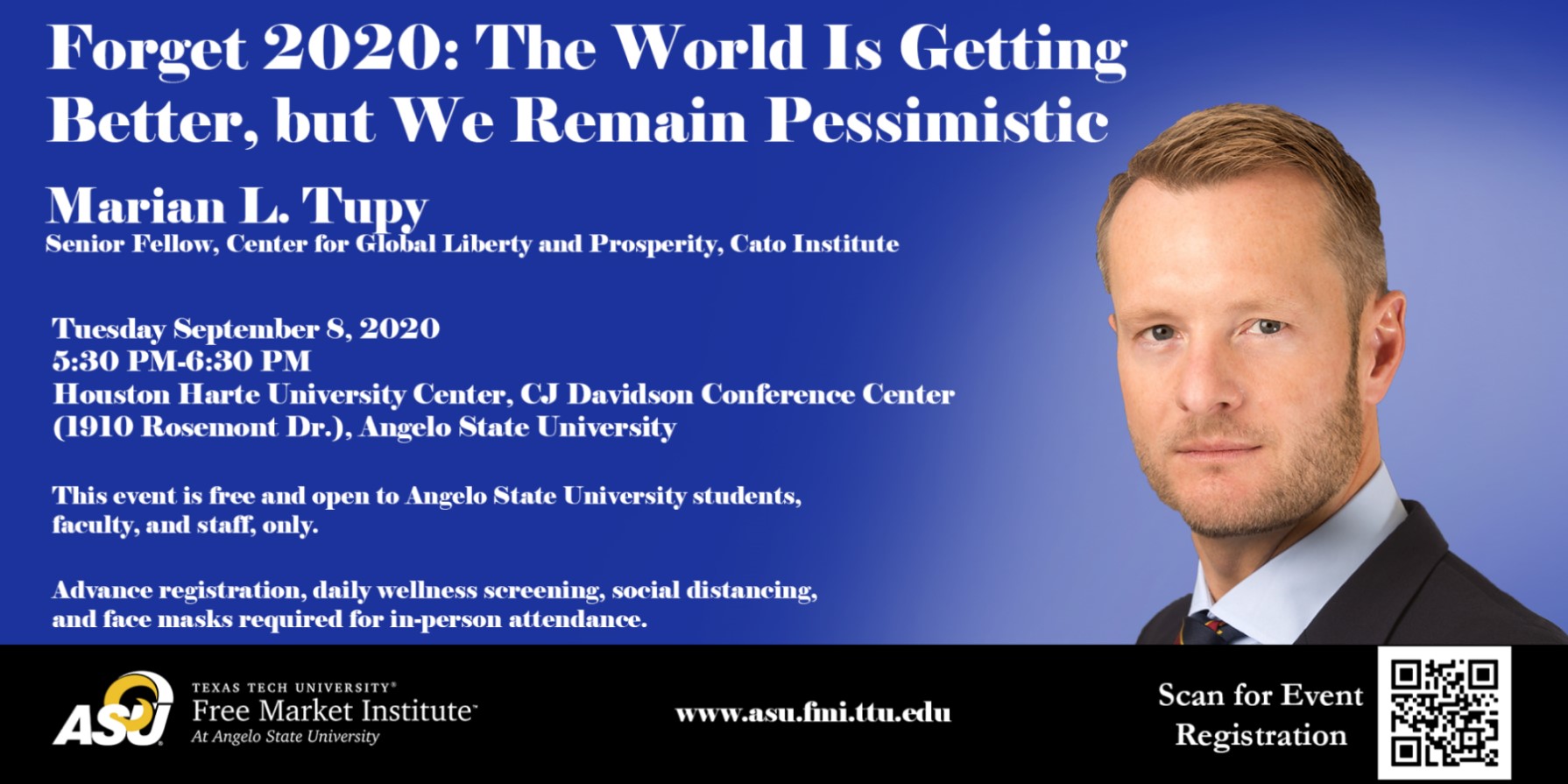
About the Program
It is safe to say that 2020 did not pan out in a way that most of us had hoped or expected. The COVID-19 pandemic wreaked havoc upon the global economy and took the lives of hundreds of thousands of people around the world. From Washington, DC to London, young people also took to the streets to protest a plethora of wrongs—some real and some imagined. Despite all of this, Marian Tupy argued there is plenty of evidence that the state of the world in general and of humanity in particular are for the most part getting better.
Open Borders: The Science and Ethics of Immigration
October 6, 2020
Bryan Caplan, George Mason University
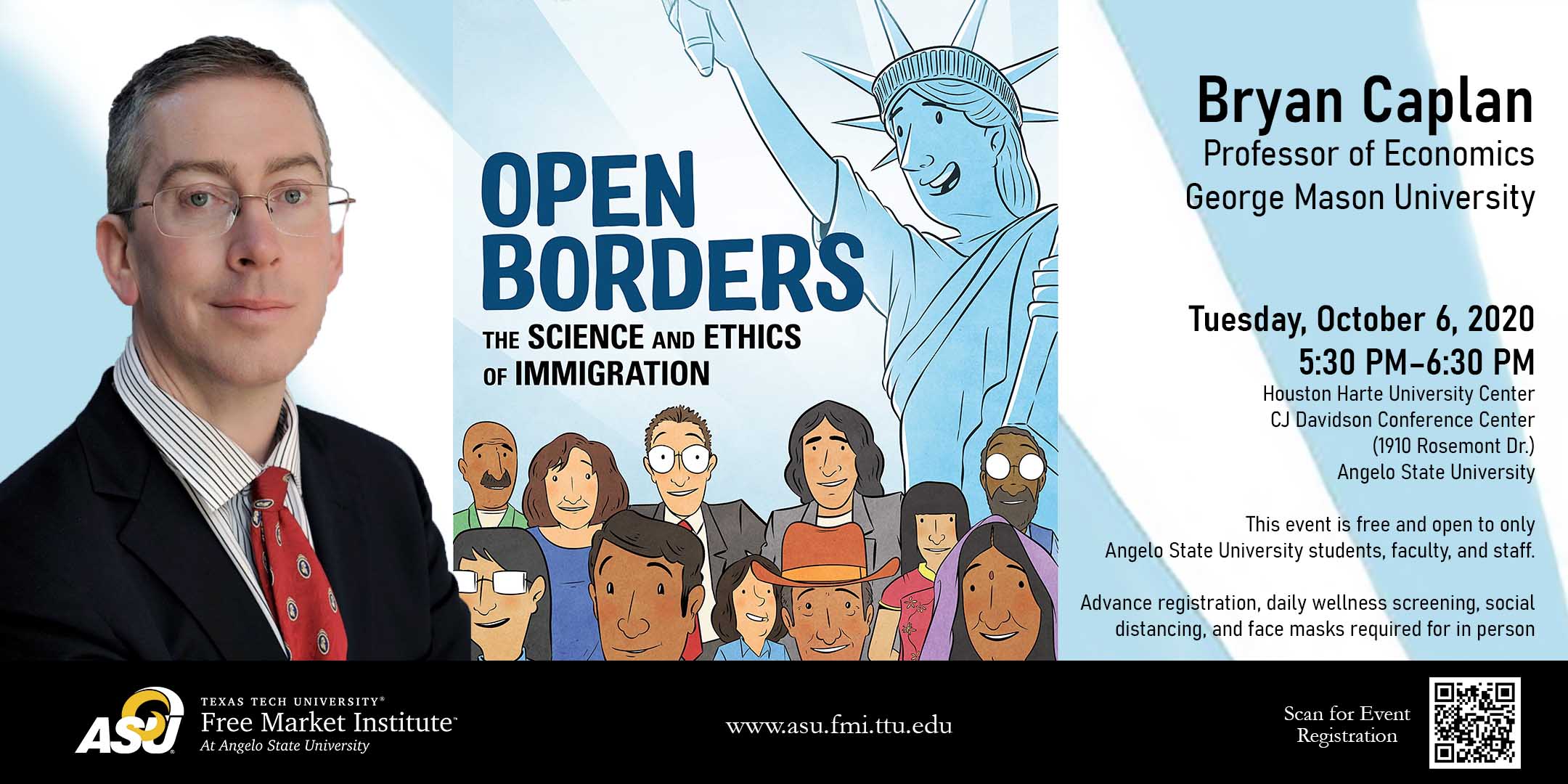
About the Program
American policymakers have long been locked in a heated battle over whether, how many, and what kind of immigrants to allow to live and work in the country. Those in favor of welcoming more immigrants often cite humanitarian reasons, while those in favor of more restrictive laws argue the need to protect native citizens. Bryan Caplan argues that these debates would benefit from a new, compelling perspective: he argues that opening all borders could eliminate absolute poverty worldwide and usher in a booming worldwide economy—greatly benefiting humanity.
Was the Cure Worse than COVID-19?
November 17, 2020
Vance Ginn, Texas Public Policy Foundation
About the Program
The U.S. economy and the Texas economy were hit hard by COVID-19 and government lockdowns. While the initial reasoning for severe restrictions on Americans' liberties was to flatten the curve to not overwhelm hospital capacity, the goalposts moved multiple times with some wanting to get to zero infections. These changes made it difficult to determine how best to inform the public and policymakers on the spread of the virus. Given such sweeping policies to deal with the novel coronavirus, Vance Ginn presented his case for why it is important to consider the tradeoffs to determine whether the cure has been worse than the disease.
Is Bitcoin a Bubble?
February 4, 2021
William Luther, Florida Atlantic University
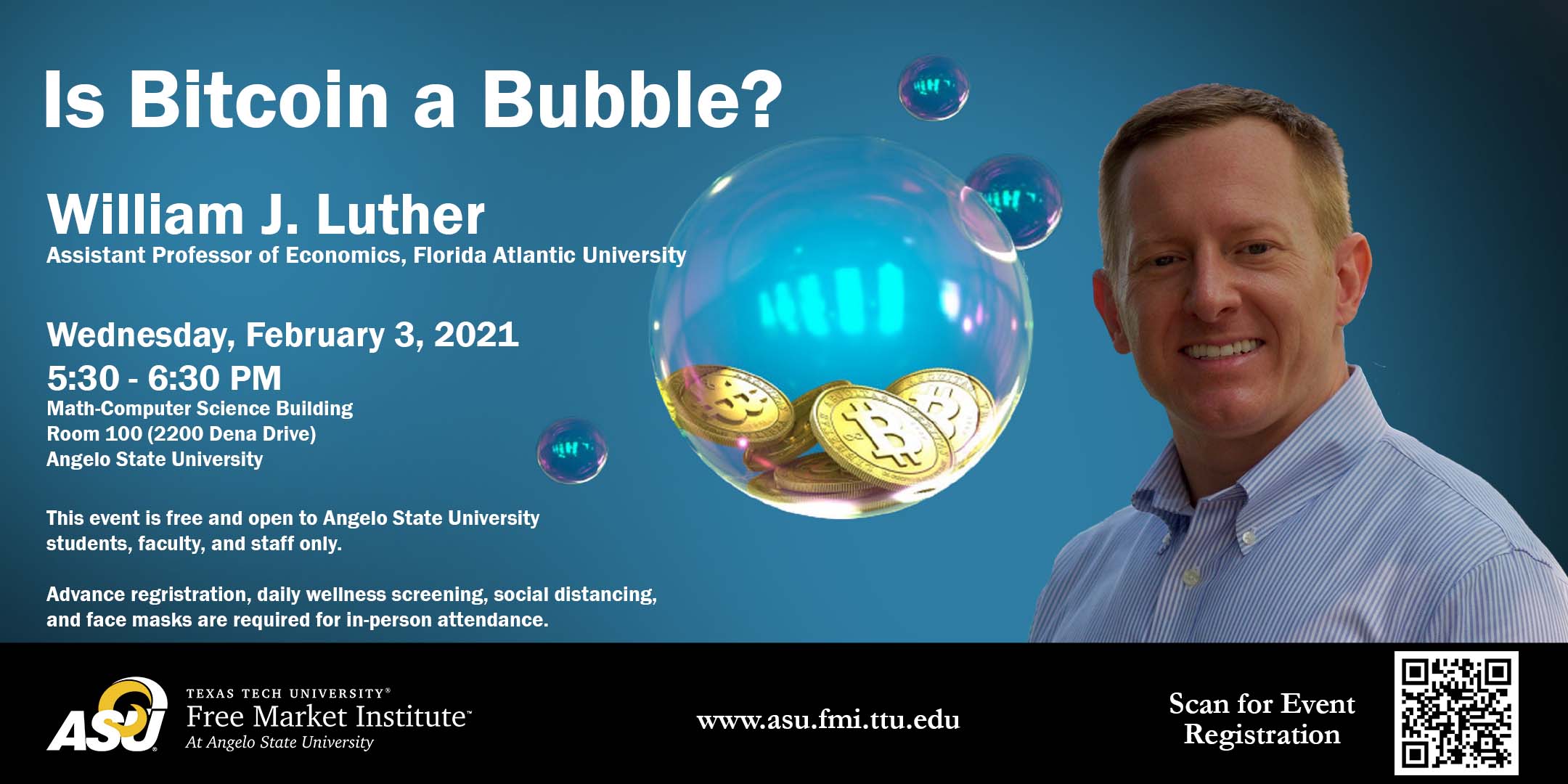
About the Program
The price of Bitcoin soared from around $9,000 in January 2020 to an astounding $40,000 in January 2021. In February 2021, the price was around $32,000. Naturally, many observers were left scratching their heads. Why had the price of Bitcoin fluctuated so much? Why does it remain so valuable today? William Luther considered the fundamental value of Bitcoin—and various factors affecting it.
Is Christianity Compatible with Economic Freedom?
March 25, 2021
Anne Rathbone Bradley, The Fund for American Studies
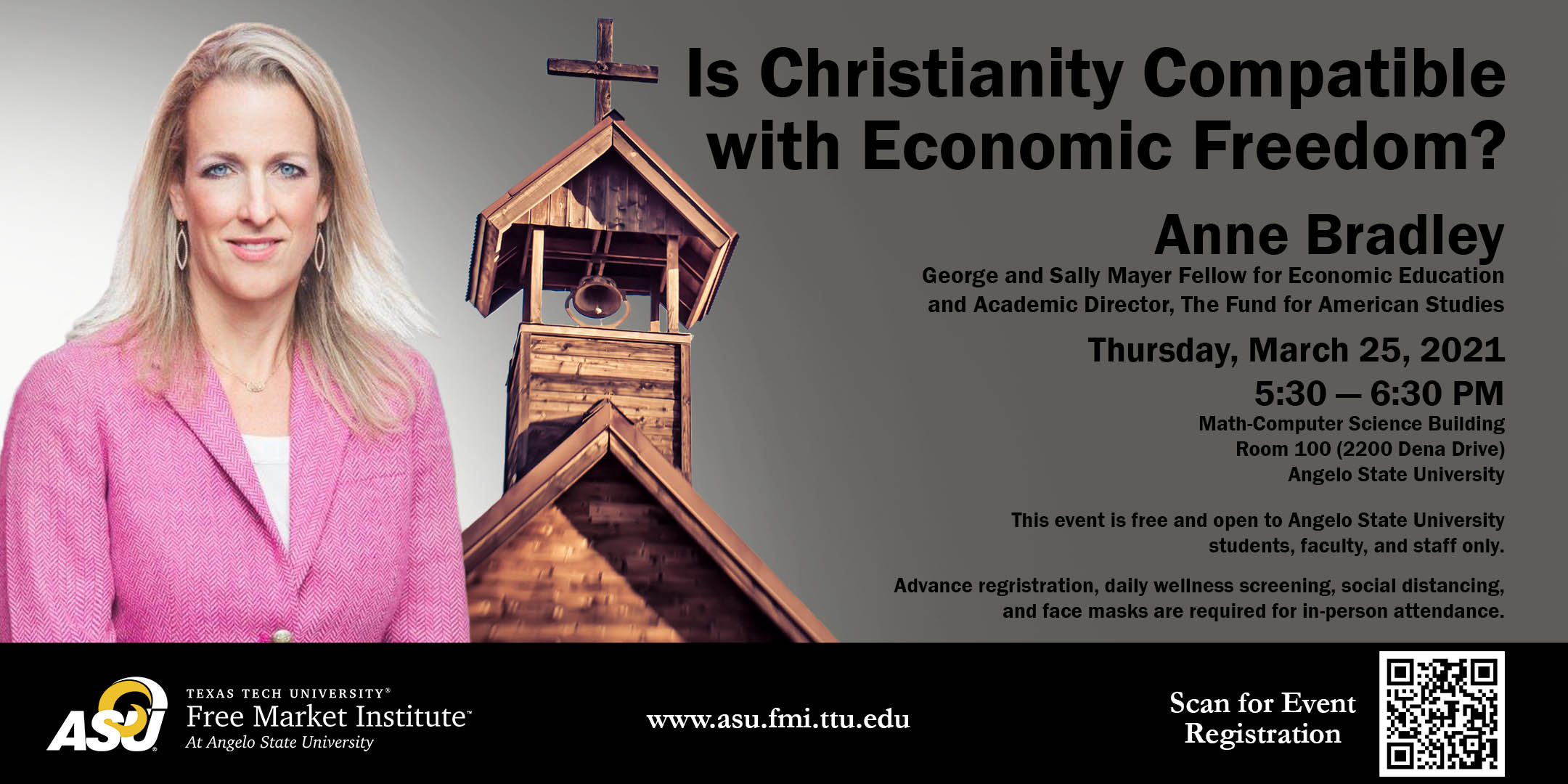
About the Program
The Christian theological tradition provides a framework for human dignity, purpose, work, and flourishing. Anne Rathbone Bradley argued that Christians cannot begin to assess what type of economic system will best allow for human flourishing without examining the immutable aspects of human nature and our purpose, both of which flow from Scripture.
In Order to Live: A North Korean Girl's Journey to Freedom
April 27, 2021
Yeonmi Park, Human Rights Activist
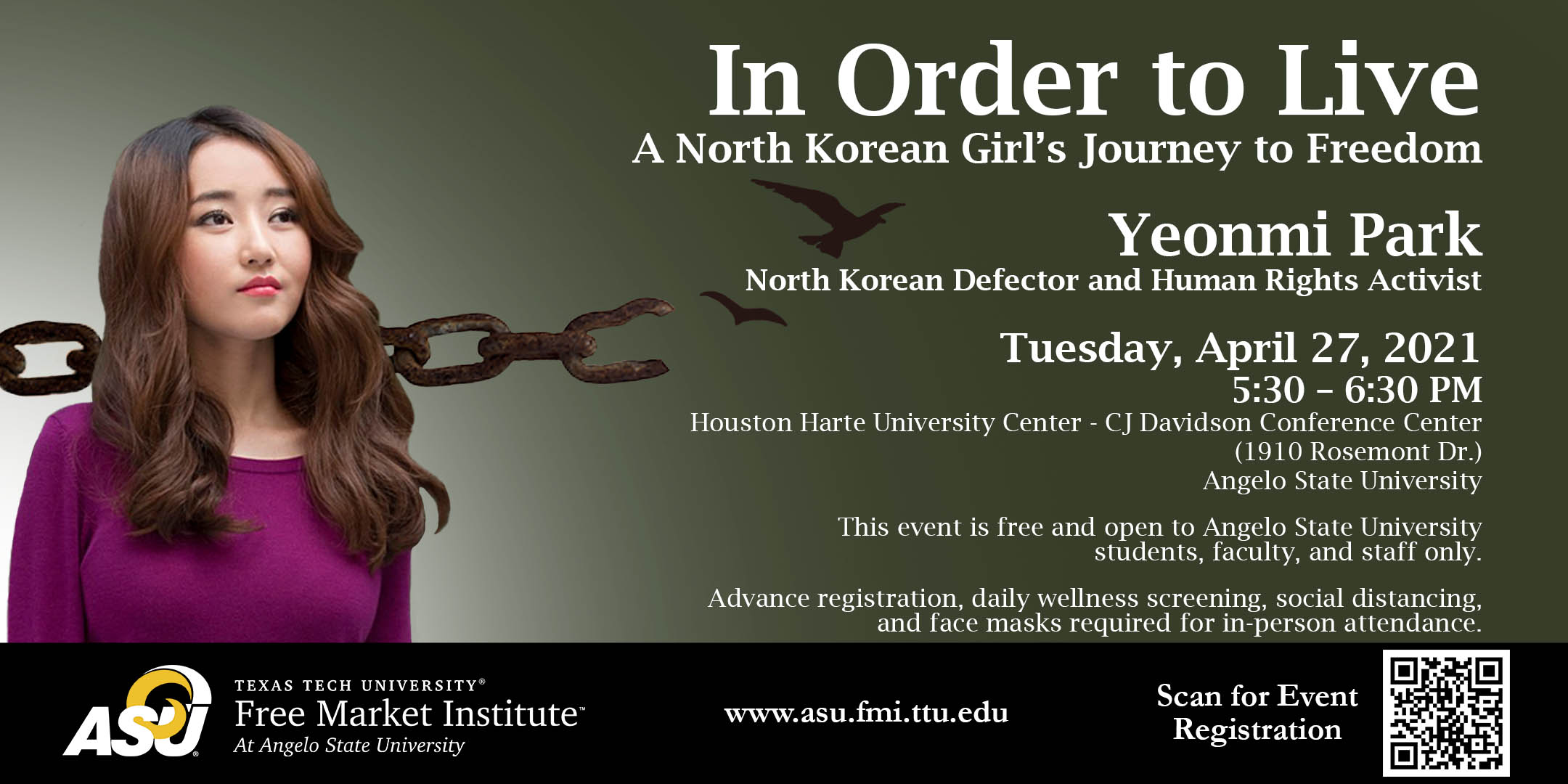
About the Program
Some of us must risk everything for the fundamentals of freedom, dignity, and justice. We must all fight against tyranny. Everything must be taught, even the fundamentals we sometimes take for granted: freedom, compassion, love. For Yeonmi Park, growing up in North Korea, right vs. wrong, justice vs. injustice—these weren't concepts inherently understood or taught. Telling her electrifying story of escape from North Korea, Park explained that the life she left there was "a totally different planet." There's only one definition of love in North Korea—"love for the Dear Leader." Romantic love doesn't exist as a concept or possibility. And for most North Koreans, neither does freedom.

Free Market Institute
-
Address
Texas Tech University - Box 45059 - Lubbock, TX - 79409-5059 -
Phone
806.742.7138 -
Email
free.market@ttu.edu
